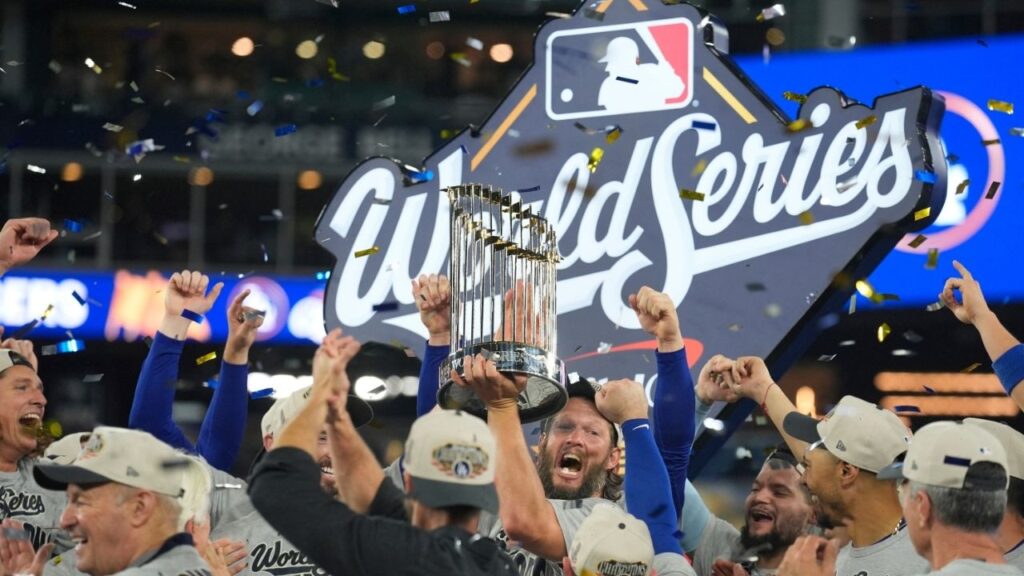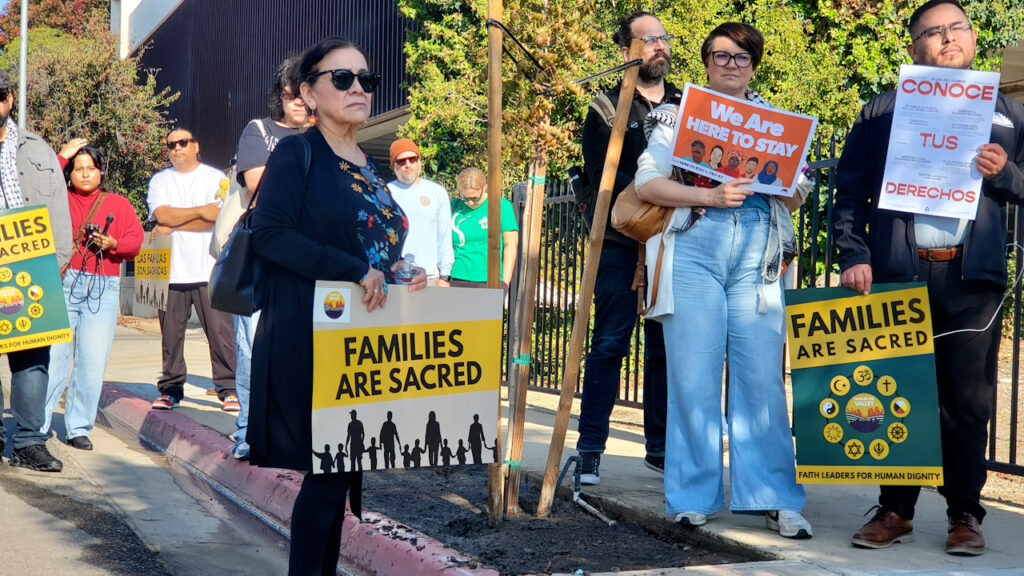People wait in line outside the U.S. Supreme Court the morning before justices are expected to issue opinions in pending cases, in Washington, U.S., June 14, 2024. (Reuters File)

- The U.S. Supreme Court over the 2024-2025 term ruled on many so-called "culture wars" issues.
- It also ruled on the TikTok ban, tailpipe emissions, and guns.
- Several big cases involved environmental laws and regulations.
Share
|
Getting your Trinity Audio player ready...
|
The U.S. Supreme Court during its 2024-2025 term decided cases involving birthright citizenship, gender-affirming medical care for transgender minors, guns, job discrimination, religious rights, online pornography, preventive healthcare, Planned Parenthood funding, federal regulatory powers on vape products and nuclear waste storage, voting rights and more.
Here is a look at some of the top cases decided. The court also has considered other cases involving President Donald Trump on an emergency basis without hearing arguments.
BIRTHRIGHT CITIZENSHIP
The justices on June 27 curbed the power of federal judges to impose nationwide rulings impeding presidential policies in a ruling in the legal fight over Trump’s executive order restricting birthright citizenship. The ruling did not let Trump’s birthright citizenship order go into effect immediately, directing lower courts that blocked it to reconsider the scope of their orders. The ruling also did not address the order’s legality. The decision granted a request by the Trump administration to narrow the scope of three nationwide injunctions issued by federal judges in Maryland, Massachusetts and Washington state that halted enforcement of his directive while litigation challenging the policy plays out. Trump directed federal agencies to refuse to recognize the citizenship of U.S.-born children who do not have at least one parent who is an American citizen or lawful permanent resident, also known as a “green card” holder.
TRANSGENDER RIGHTS
The justices on June 18 backed a Republican-backed ban in Tennessee on gender-affirming medical care for transgender minors in a setback for transgender rights. The court decided that the ban does not violate the U.S. Constitution’s 14th Amendment promise of equal protection, as challengers to the law had argued. The ruling affirmed a lower court’s decision upholding Tennessee’s law barring medical treatments such as puberty blockers and hormones for people under age 18 experiencing gender dysphoria. That refers to the significant distress that can result from incongruity between a person’s gender identity and the sex they were assigned at birth.
WORKPLACE DISCRIMINATION
The court on June 5 made it easier for people from majority backgrounds such as white or straight individuals to pursue claims alleging workplace “reverse” discrimination, reviving an Ohio woman’s lawsuit claiming she was illegally denied a promotion and demoted because she is heterosexual. The justices threw out a lower court’s decision rejecting a civil rights lawsuit by the plaintiff, Marlean Ames, against her employer, Ohio’s Department of Youth Services. Ames said she had a gay supervisor when she was passed over for a promotion in favor of a gay woman and demoted, with a pay cut, in favor of a gay man. The Supreme Court decided that federal law and its own precedents make clear that there can be no distinctions between majority-group and minority-group plaintiffs in discrimination cases.
RELIGIOUS CHARTER SCHOOL
The court on May 22 blocked a bid led by two Catholic dioceses to establish in Oklahoma the first taxpayer-funded religious charter school in the United States in a major case involving religious rights in American education. The justices left intact a lower court’s decision that blocked the establishment of St. Isidore of Seville Catholic Virtual School. The ruling was 4-4, with Justice Amy Coney Barrett recusing herself from the case. Oklahoma’s top court found that the proposed school would violate the U.S. Constitution’s First Amendment limits on government involvement in religion. Set up as alternatives to traditional public schools, charter schools typically operate under private management and often feature small class sizes, innovative teaching styles or a particular academic focus. Charter schools are considered public schools under Oklahoma law and draw funding from the state government.
‘GHOST GUNS’
The justices on March 26 upheld a federal regulation targeting largely untraceable “ghost guns” imposed by Democratic former President Joe Biden’s administration in a crackdown on firearms whose use has proliferated in crimes nationwide. The 7-2 ruling overturned a lower court’s decision that the U.S. Bureau of Alcohol, Tobacco, Firearms and Explosives had exceeded its authority in issuing the 2022 rule targeting parts and kits for ghost guns. The court found that the regulation was consistent with a 1968 federal law called the Gun Control Act.
MEXICO GUNS LAWSUIT
The court on June 5 spared two American gun companies from a lawsuit by Mexico’s government accusing them of aiding illegal firearms trafficking to drug cartels and fueling gun violence in the southern neighbor of the United States. The justices overturned a lower court’s ruling that had allowed the lawsuit to proceed against firearms maker Smith & Wesson and distributor Interstate Arms. The lower court had found that Mexico plausibly alleged that the companies aided and abetted illegal gun sales, harming its government.
RELIGIOUS TAX EXEMPTION
The justices on June 5 endorsed a bid by an arm of a Catholic diocese in Wisconsin for a religious exemption from the state’s unemployment insurance tax in the latest ruling in which they took an expansive view of religious rights. They overturned a lower court’s decision that had rejected the tax exemption bid by the Catholic Charities Bureau – a nonprofit corporation operating as the social ministry arm of the Catholic diocese in the city of Superior – and four entities the bureau oversees. The justices concluded that the lower court’s interpretation of the state’s tax exemption amounted to religious discrimination by treating religious denominations unequally.
ONLINE PORNOGRAPHY
The court on June 27 backed a Texas law that requires pornographic websites to verify the age of users in an effort to protect minors after the adult entertainment industry argued that the measure violates the free speech rights of adults. The justices upheld a lower court’s decision allowing enforcement of the Republican-led state’s age-checking mandate. The law likely does not violate the U.S. Constitution’s First Amendment safeguard against government abridgment of speech, the court ruled. The Texas measure is one of 24 similar ones enacted around the United States. A trade group for the adult entertainment industry appealed a lower court’s decision upholding the age-verification mandate.
LGBT SCHOOL BOOKS
The court ruled on June 27 in favor of Christian and Muslim parents in Maryland who sued to keep their elementary school children out of certain classes when storybooks with LGBT characters are read in a high-profile case involving the intersection of religion and LGBT rights. It overturned a lower court’s refusal to require Montgomery County’s public schools to provide an option to opt out of these classes. The lower court had rejected the argument made by a group of parents who sued the school district that its policy prohibiting opt-outs violated the Constitution’s First Amendment protections for the free exercise of religion.
OBAMACARE PREVENTIVE CARE MANDATE
The court on June 27 preserved a key element of the Obamacare law that helps guarantee that health insurers cover preventive care such as cancer screenings and HIV prevention medication at no cost to patients. It reversed a lower court’s ruling that the U.S. Preventive Services Task Force, which under the 2010 law formally called the Affordable Care Act has a major role in choosing what services will be covered, was not validly appointed. The ruling means that certain life-saving tests and treatments must continue to be provided cost-free under most insurance plans.
PLANNED PARENTHOOD FUNDING
The court heard arguments on April 2 in South Carolina’s bid to cut off public funding to Planned Parenthood in a case that could bolster efforts by Republican-led states to deprive the reproductive healthcare and abortion provider of public money. The court’s conservative justices appeared sympathetic to South Carolina’s stance. A lower court barred the Republican-governed state from terminating funding to Planned Parenthood’s regional affiliate under the Medicaid health insurance program. A ruling is expected by the end of June.
FLAVORED VAPE PRODUCTS
The court on April 2 largely backed the U.S. Food and Drug Administration’s refusal to let two e-cigarette companies sell flavored vape products that regulators consider a health risk to youths. The justices threw out a lower court’s decision that the FDA had failed to follow proper legal procedures under a federal law called the Administrative Procedure Act when it rejected the applications by the companies, Triton Distribution and Vapetasia, to sell these nicotine-containing products.
EPA AUTHORITY
The court dealt a blow to the Environmental Protection Agency in a 5-4 ruling on March 4 involving a wastewater treatment facility owned by the city of San Francisco that could make it harder for regulators to police water pollution. It ruled that the EPA exceeded its authority under an anti-pollution law by including vague restrictions in a permit issued for the facility, which empties into the Pacific Ocean. The court has limited the EPA’s reach in recent years as part of a series of rulings curbing the power federal regulatory agencies.
TAILPIPE EMISSIONS
The justices on June 20 sided with fuel producers that had opposed California’s standards for vehicle emissions and electric cars under a federal air pollution law, agreeing that their legal challenge to the mandates should not have been dismissed. They overturned a lower court’s decision to throw out the lawsuit by a Valero Energy subsidiary and fuel industry groups. The lower court had concluded that the plaintiffs lacked the required legal standing to challenge a 2022 U.S. Environmental Protection Agency decision to let California set its own regulations. The dispute centered on an exception granted to California during Biden’s administration to national vehicle emission standards set by the agency under the Clean Air Act anti-pollution law.
NUCLEAR WASTE STORAGE
The court on June 18 threw out a legal challenge by the state of Texas and oil industry interests to the Nuclear Regulatory Commission’s licensing of certain nuclear waste storage facilities. It overturned a lower court’s decision that had invalidated a license awarded by the NRC to operate an off-site nuclear waste storage facility in western Texas. The NRC is the federal agency that regulates nuclear energy in the United States.
UTAH RAILWAY
The court on May 29 handed a setback to environmentalists by allowing federal agencies to limit the scope of their review of the environmental impact of projects they regulate, as the court bolstered a Utah railway project intended to transport crude oil. The justices overturned a lower court’s decision that had halted the project and had faulted an environmental impact statement issued by a federal agency called the Surface Transportation Board in approving the railway as too limited in scope. The project was challenged by environmentalists and a Colorado county.
TELECOMMUNICATIONS SERVICES FUND
The court on June 27 endorsed the way the Federal Communications Commission funds its multi-billion dollar program to expand phone and broadband internet access to low-income and rural Americans and other beneficiaries. It overturned a lower court’s decision that the FCC’s funding mechanism employing mandatory contributions from telecommunications companies had effectively levied a “misbegotten tax” on consumers in violation of the U.S. Constitution’s vesting of legislative authority in Congress.
LAWSUITS AGAINST PALESTINIAN AUTHORITIES
The court on June 20 upheld a statute passed by Congress to facilitate lawsuits against Palestinian authorities by Americans killed or injured in attacks abroad as plaintiffs pursue monetary damages for violence years ago in Israel and the West Bank. The ruling overturned a lower court’s decision that the 2019 law violated the rights of the Palestinian Authority and Palestine Liberation Organization to due process under the U.S. Constitution. The U.S. government and a group of American victims and their families had appealed the lower court’s decision that struck down a provision of the law.
DEATH PENALTY CASE
The court on February 25 threw out Oklahoma death row inmate Richard Glossip’s conviction for a 1997 murder-for-hire plot and granted him a new trial. The justices in a 5-3 ruling concluded that prosecutors violated their constitutional duty to correct false testimony by their star witness. They reversed a lower court’s decision that had upheld Glossip’s conviction and had allowed his planned execution to move forward despite his claim that prosecutors wrongly withheld evidence that could help his defense.
US TIKTOK BAN
The justices on January 17 upheld a law banning TikTok in the United States on national security grounds if its Chinese parent company ByteDance did not sell the short-video app by a deadline set by Congress. The justices ruled 9-0 that the law, passed by Congress last year and signed by Biden, did not violate the Constitution’s First Amendment protection against government abridgment of free speech. The justices affirmed a lower court’s decision that had upheld the measure. Trump, Biden’s successor, subsequently opted not to enforce the law and gave the parties time to try to reach a deal.
(Compiled by Andrew Chung, John Kruzel, Nate Raymond, Blake Brittain and Daniel Wiessner; Editing by Will Dunham)



















